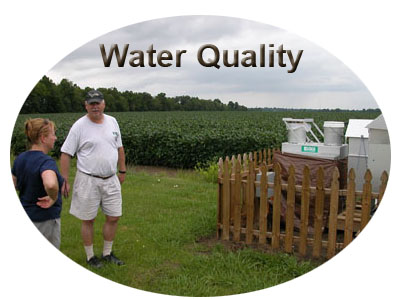

The quality of surface water and groundwater varies significantly due to different environmental conditions, ecosystems, and human uses. Our studies focus on transport of contaminants through the unsaturated zone. Agricultural practices impact water quality via various mechanisms such as surface water runoff and ground water recharge. Waste disposal, especially past practices, have resulted in the transport of hazardous and radioactive wastes. Unsaturated-zone transport processes control many aspects of the introduction, persistence, and spread of agents that degrade water quality—toxic substances, salinity, and high populations of certain microorganisms. The isolating and absorbing characteristics of the unsaturated zone are often used to prevent or mitigate contamination.
Highlights:
• We have demonstrated how our source-responsive model can explain otherwise-anomalous rapid water-table responses in deep, geologically complex unsaturated zones at the Idaho National Laboratory
and the Nevada National Security Site. Results have generated controversy which has constructively motivated questions about earlier assumptions that were based on too little relevant data.
Mirus, B.B., and Nimmo, J.R., 2013, Balancing practicality and hydrologic realism--A parsimonious approach for simulating rapid groundwater recharge via unsaturated-zone preferential flow: Water Resources Research, v. 49, no. 3, 2012WR012130, doi: 10.1002/wrcr.20141, p. 1458–1465.
(PDF)
Ebel, B.A., and Nimmo, J.R., 2013, An alternative process model of preferential contaminant travel times in the unsaturated zone--Application to Rainier Mesa and Shoshone Mountain, Nevada: Environmental Modeling and Assessment, v. 18, no. 3, doi: 10.1007/s10666-012-9349-8, p. 345-363.
(PDF).